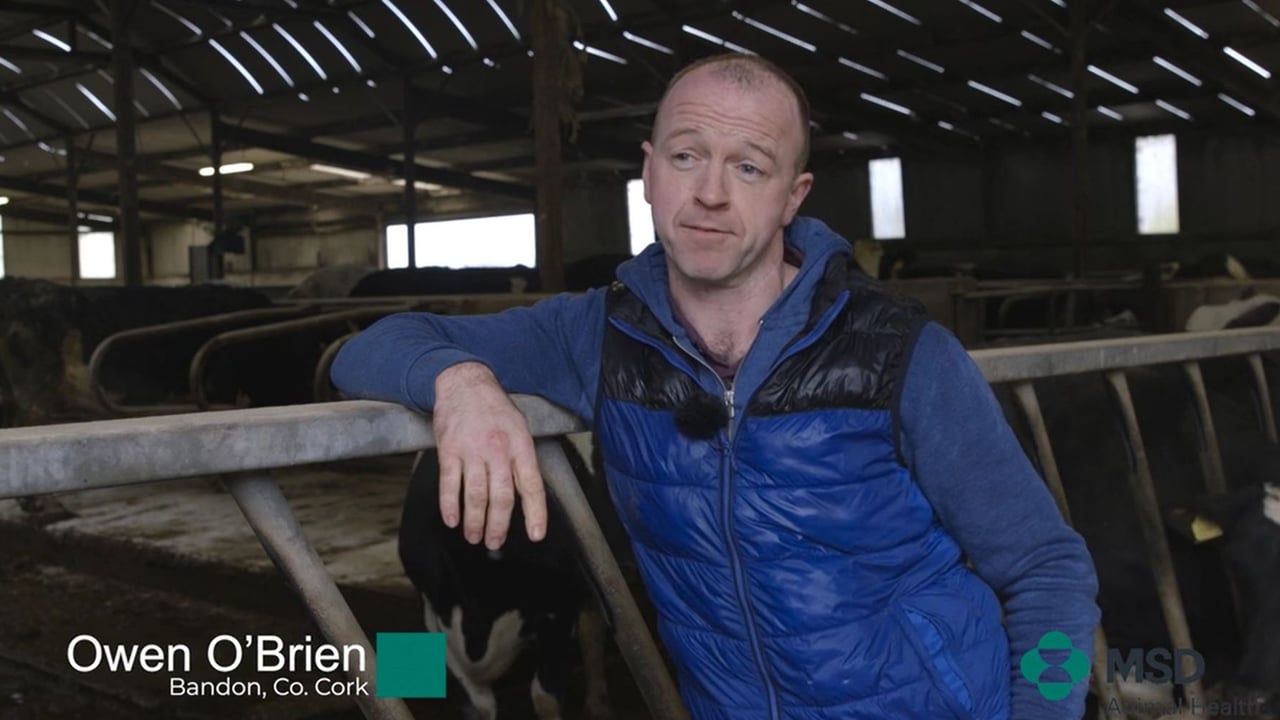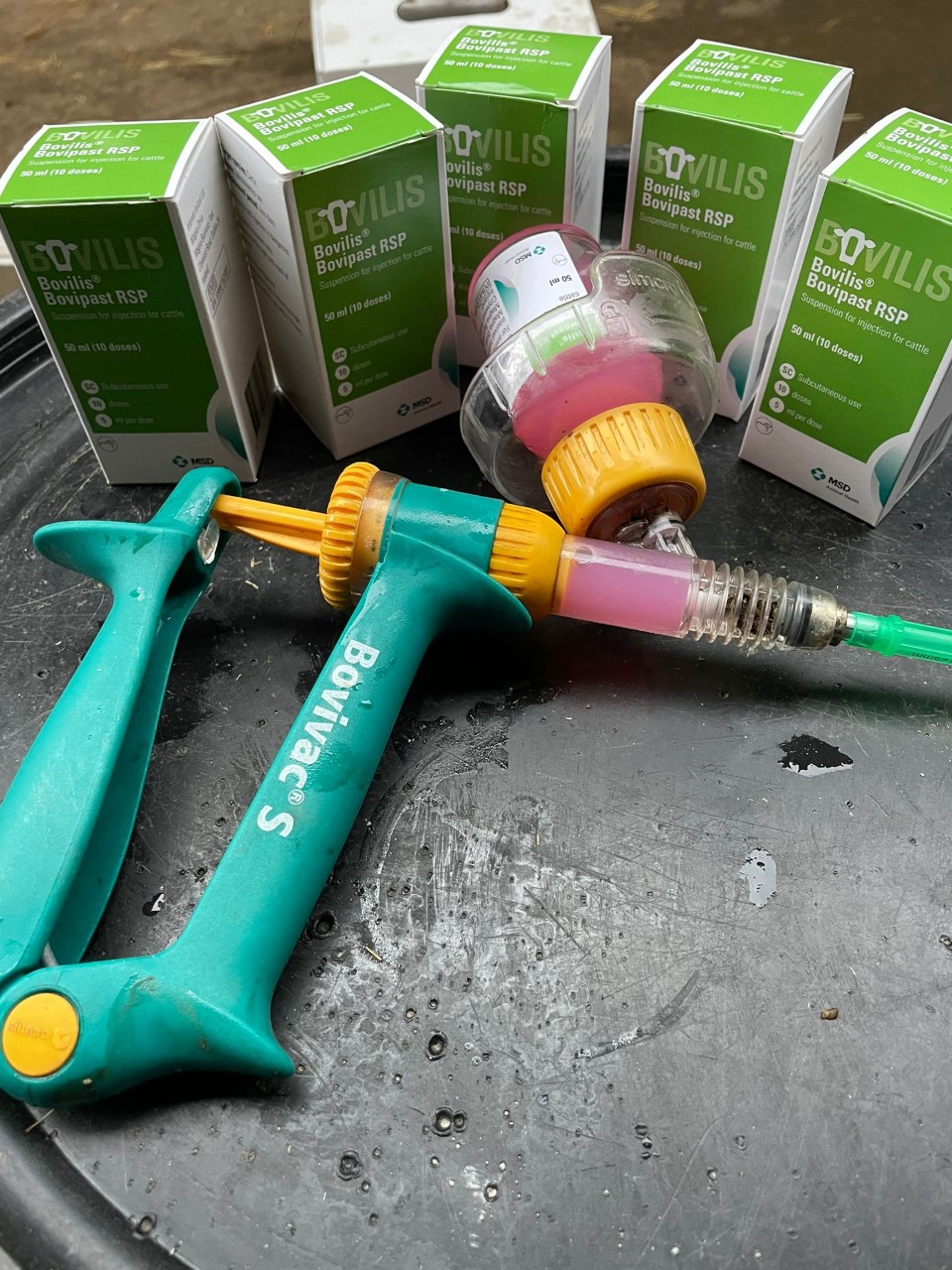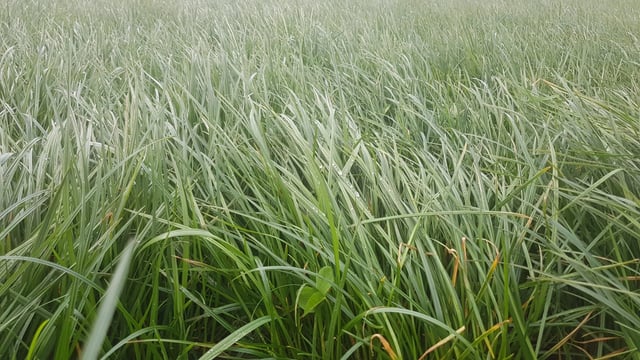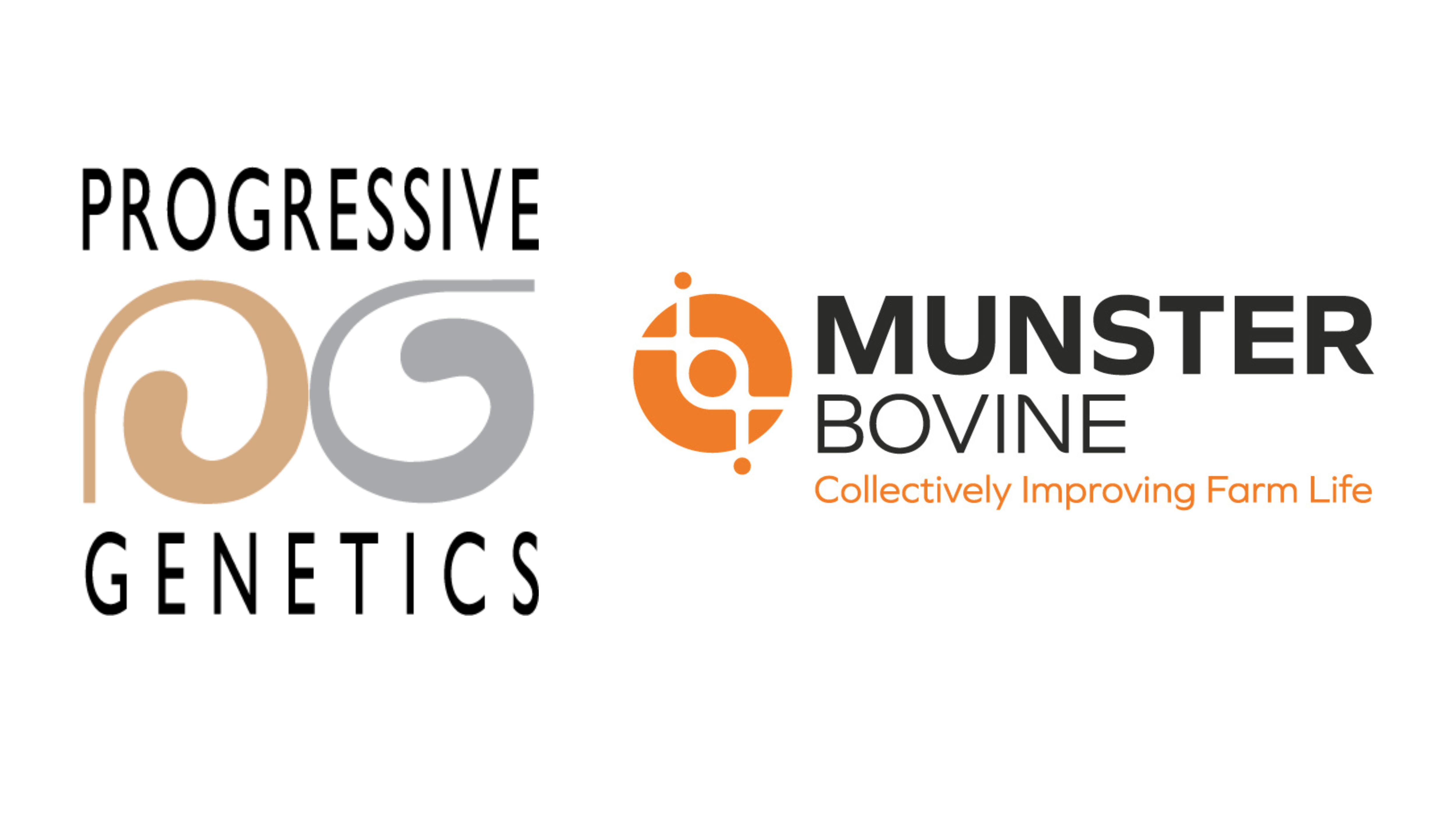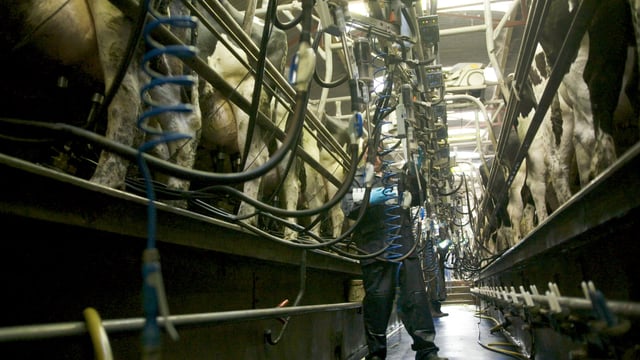Sponsored Article

Sponsored Article
Calf pneumonia: Prevention better than cure for Cork farmer
Sponsored Article

Third-generation dairy farmer Owen O’Brien runs a 74-cow-dairy farm on 93ac in Bandon, Co. Cork.
He farms alongside his wife, Rosaleen, his three children, Daniel, Amy and Ciaran, and his parents, who remain very active on the family farm.
For Owen, a comprehensive vaccination programme has become essential in the efficient management of his dairy herd in order to avoid calf pneumonia.
An outbreak of calf pneumonia can lead to significant costs in terms of reduced growth rates, lower milk yields, increased feed requirements, veterinary attention and even death.
“I think the first year of a Friesian heifer calf's life is the most important for production going forward as a cow," Owen said.
"I can see the benefits of vaccination in avoiding any setbacks. It’s cheap insurance in the long-term health of the cow. My motto is prevention is better than cure.
"Good quality colostrum, good hygiene practices, good housing management and an effective vaccination programme must go hand in hand to reduce the risk of pneumonia.
"The results are clear as I find my cows are heathier, fitter animals and don’t get any setbacks."
Following an outbreak of calf pneumonia in 2016, Owen consulted with his local vet, Kevin O’Sullivan, and since then vaccinates all calves with Bovilis Bovipast RSP at two weeks, followed by a booster four weeks later.
To provide extra protection against pneumonia animals are vaccinated two weeks pre-housing.
“Pneumonia can cause serious impacts on growth rates in heifers and often the individual sick calf is only the tip of the iceberg and all of them can be infected," Kevin O’ Sullivan from Glasslyn Vets.
"Prevention is so important when you are dealing with replacement heifers. You really want them to be thriving all the way through until they go to the bull and vaccination is a surefire way of reducing health risks,” says Kevin O’ Sullivan from Glasslyn Vets.
Calf pneumonia is a complicated multi-factorial disease. Healthy animals can carry Mannheimia haemolytica and Pasteurella multocida as commensals without developing clinical signs.
Infectious agents, environment, and the calf’s immune status are all factors that can determine the onset of an infection.
A calf receiving poor-quality or inadequate levels of colostrum is one of the biggest factors affecting immunity, making them more susceptible to infection.
Several stress factors such as poorly ventilated and overcrowded housing, grouping different age groups, changes in weather and transportation can also increase the risk of pneumonia.
Once the calf is stressed, the ability of their immune system to fight infection is significantly reduced.
Bovilis Bovipast RSP contains IRP technology which inhibits Mannheimia haemolytica from replicating which reduces the infection from developing. It provides the broadest protection on the market against bacterial pneumonia caused by Mannheimia haemolytica and protects the animal against two viral causes of pneumonia, RSV and PI3.
As pneumonia can result from bacterial or viral infection, it is important to choose a vaccine that provides a broad range of cover against some of the most common infectious pathogens challenging calves.
Bovilis Bovipast RSP can also be administered at the same time as Bovilis IBR Marker Live from three weeks of age.
Vaccination with Bovilis IBR Marker Live may be required where IBR has been detected on a farm or where the risk of introduction of the disease is high i.e. purchasing stock or animals returning from shows or sales.
For more information on pneumonia and how you can keep your herd disease free, click here.
Sponsored Article


